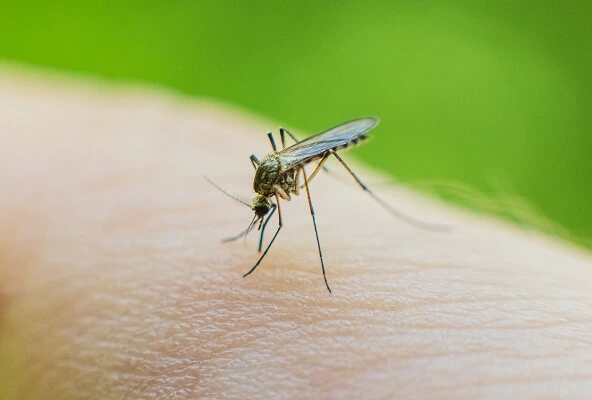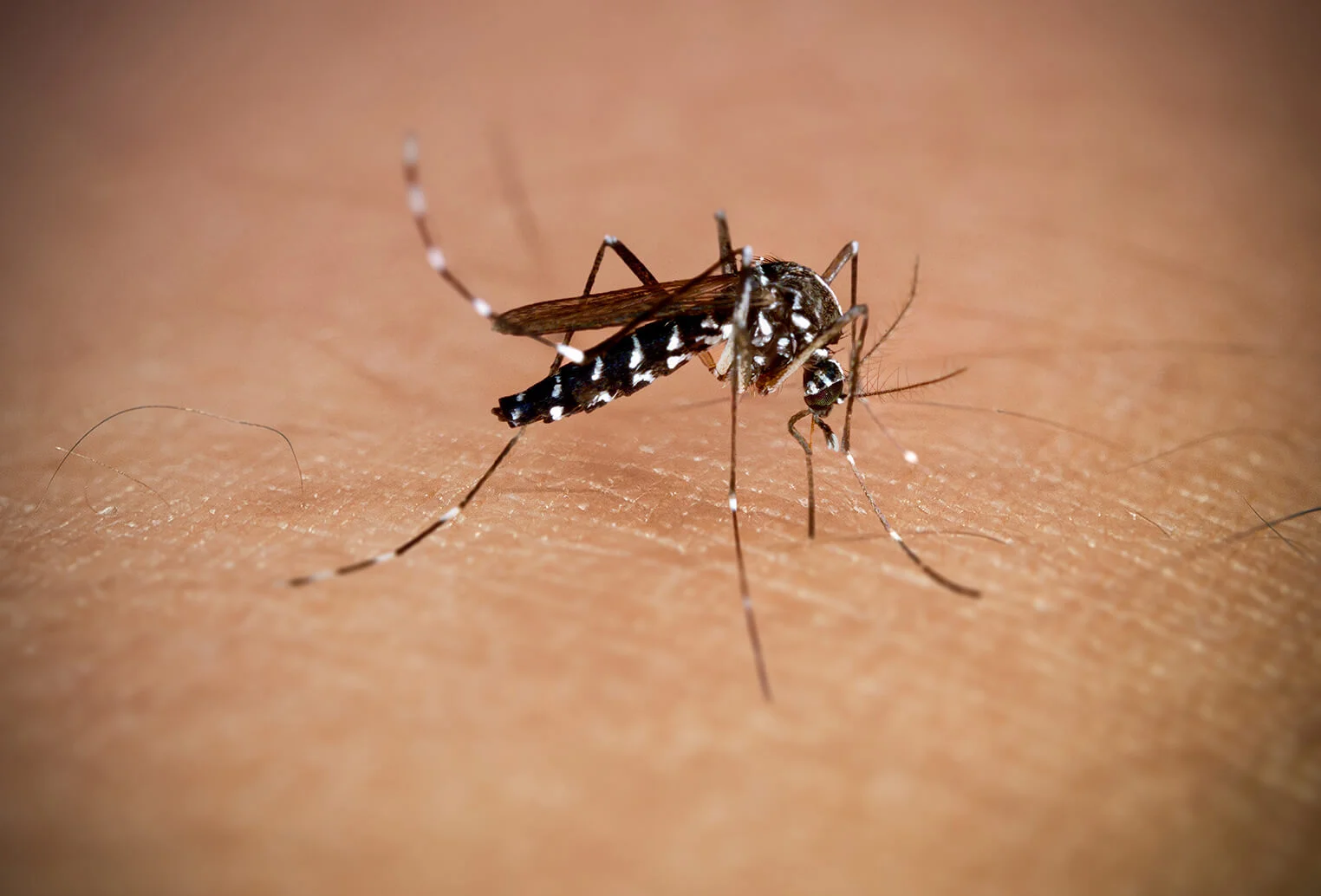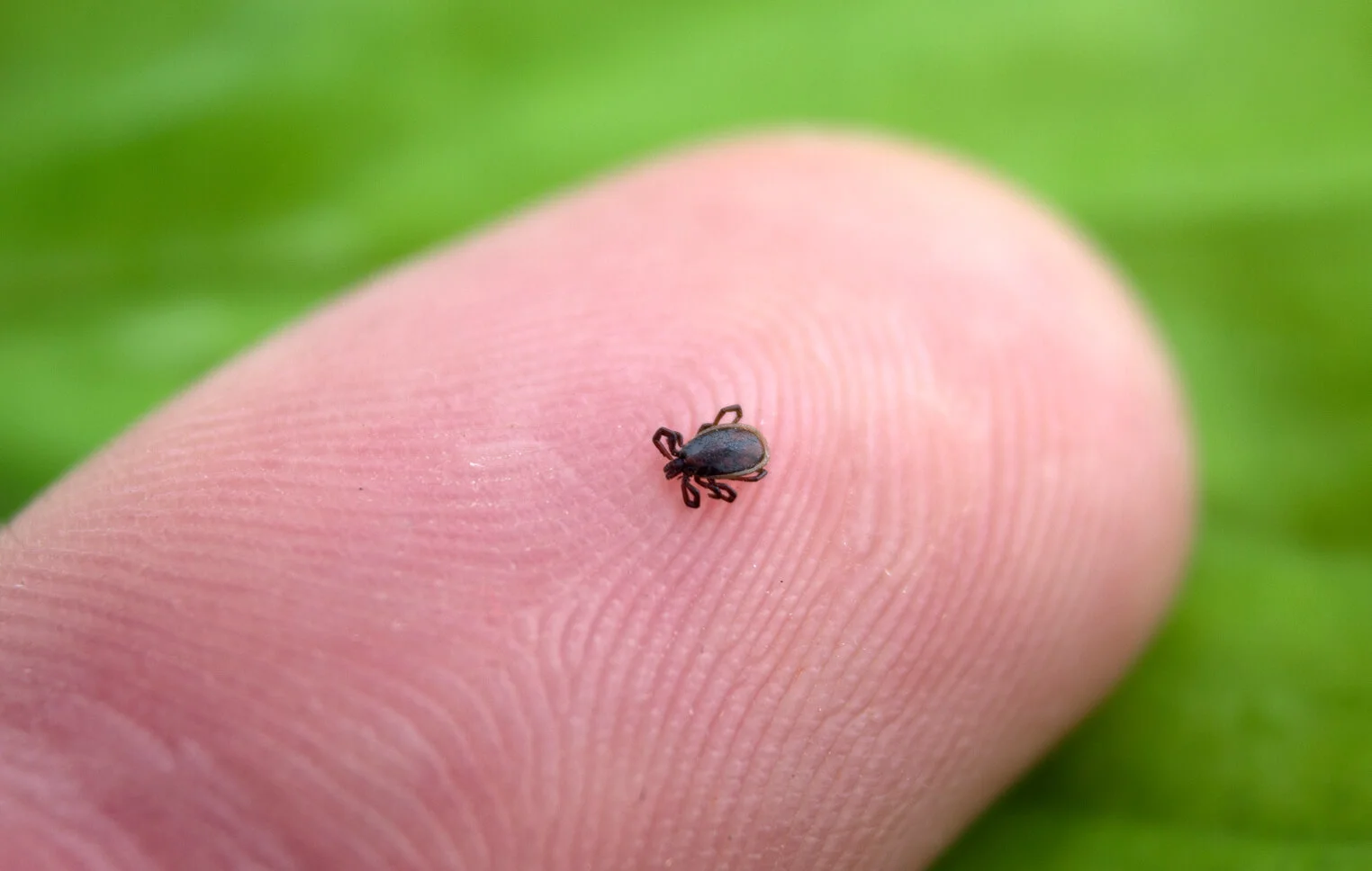Mosquito and Tick Control in Massachusetts


Effective Mosquito and Tick Reduction
Imagine stepping outside with limited mosquito swarms and no tick concerns; just peace of mind and pest-free moments with your family. At Ransford Pest Control, our top-of-the-line mosquito and tick control services reduce mosquitoes and ticks from yards with ease. Don’t live in discomfort for another day—call the professional mosquito and tick exterminators at Ransford Pest Control for targeted service.

Targeted Mosquito and Tick Service in Central Massachusetts
Central Massachusetts’ warm, humid summers make it a hotspot for mosquitoes and ticks, but your backyard doesn’t have to be their playground. Protect your family and pets with Ransford Pest Control’s local outdoor pest control services, backed by over 125 years of trusted expertise.
Our Mosquito and Tick Control Services Involve:
- Free Quotes: Hassle-free and straightforward, you can get an accurate estimate by calling (508) 756-5197 or by visiting our get a free a quote page, so you know exactly what to expect.
- Quick Scheduling: We know your time is valuable. That’s why we work around your schedule to treat your property as quickly as possible.
- Experienced Exterminators: With over 125 years of local experience, our team knows exactly how to target biting pests in Central Massachusetts.
- No Commitment Required: Enjoy the benefits of our tick and mosquito pest control services without the pressure of long-term contracts.
At Ransford Pest Control, we combine cutting-edge treatments with deep local knowledge to get to the source of your mosquito and tick problems.
Same-Day
Services If You Call Before Noon
125+
Years in Business
Compassionate
Practices
Sustainable
Pest Control Methods
Tick and Mosquito Threats: What to Know
Mosquitoes and ticks are more than just annoying pests—they can carry dangerous diseases that can pose serious risks to your family and pets.
Mosquitoes can transmit:
- West Nile Virus
- Triple E (Eastern Equine Encephalitis)
- Heartworm (in pets)
Ticks can transmit:
- Lyme Disease
- Rocky Mountain Spotted Fever
- Anaplasmosis
- Ehrlichiosis
- Babesiosis
While ticks make themselves at home in your yard, certain species of ticks, such as brown dog ticks, can survive indoors. Brown dog ticks are a unique species capable of completing their entire life cycle indoors and are prone to feed on dogs. While this may sound alarming, taking preventative approaches can help stop the spread of these harmful creatures. By professionally targeting mosquito breeding sites and tick-prone areas, you can significantly reduce the risk of disease transmission to both pets and loved ones.
Our Effective Mosquito Control Program
At Ransford Pest Control, we understand how challenging it can be to enjoy your yard during the peak mosquito season, from April through October. With over 50 mosquito species active in Central Massachusetts, it’s crucial to take proactive steps to protect your family and pets. Our mosquito extermination services offer effective solutions to tackle these pests head-on, giving you the peace of mind you deserve.
Our Program Features Two Treatment Options:
Traditional Treatment: A liquid misting treatment that targets common mosquito hangouts such as tree lines, areas that retain moisture, and shaded spots. This treatment works by allowing mosquitoes to pick up the product, contaminating nearby breeding and egg-laying sites as they travel. As new mosquitoes emerge, they are eliminated, breaking the mosquito lifecycle.
Organic Treatment: For those looking for a more environmentally friendly option, we offer organic products that are just as effective at reducing mosquito populations, without the use of chemicals.
Flexible Treatment Options
Get a Free QuoteWhile we don’t require contracts, continuing treatments beyond the first helps ensure long-lasting protection and a mosquito-free yard throughout the season. We recommend a minimum of four treatments, spaced four weeks apart for the regular treatment or three weeks apart for the organic option.
Our non-contract approach gives you flexibility while delivering the results you need, and we’ll always advise on the best plan to ensure your yard stays mosquito-free. Trust Ransford Pest Control to provide a comprehensive, reliable solution tailored to your needs, and enjoy your outdoor space without the nuisance of mosquitoes.
What Our Customers Are Saying

Invest in Annual Tick Protection
At Ransford Pest Control, we understand the risks that ticks pose, particularly in Central Massachusetts, where deer ticks and dog ticks are common, and activity is prevalent whenever there is no snow on the ground.
Ransford Pest Control offers a once-a-year granular treatment in the spring to targets areas where ticks are likely to be, with an optional autumn liquid treatment for added protection in the fall—especially effective when paired with our mosquito misting service. This combined approach ensures comprehensive, year-round defense against ticks and biting insects, keeping your yard and loved ones safe.
Tick FAQs
Do ticks live in wood piles?
Yes, some ticks do live in wood piles. Ticks love areas such as decomposing leaves or piles of wood where rodents are also often found. If you want to keep ticks away from your yard, limit the number of dark areas subject to moisture.
How can I control ticks?
At Ransford Pest Control, we offer a simple, 2-step process. Here are some of our steps:
- To treat the larvae and the nymphs in the Spring, Ransford will use a granular product applied over the leaf litter and around your home.
- Once wet, the granules will soak into the leaf litter killing any ticks it comes in contact with. Ransford has both green products and regular insecticides for use on ticks.
How can I keep ticks out of my yard?
Even if you don’t think your yard can play host to ticks, you’re better off being safe than sorry. Here are a few tips that can help.
- Keep the lawn mowed and clear away leaves: The shorter your grass is, the less likely it is that you will have a tick problem. Keep the grass short and eliminate yard waste or leaf piles.
- Gravel path: If you have a path on your property, don’t hesitate to put down gravel. The ticks are less likely to cross it, keeping your yard tick free.
- Be careful with your wood pile: If your wood pile is a mess, you’re creating an invitation for ticks. Neatly stack your wood, and make certain the spot where you keep it gets sun on a regular basis.
Don’t let ticks prevent you from enjoying your yard. If you do notice an up-’tick’ on your property, contact Ransford immediately. We offer same-day services if you call before noon.
